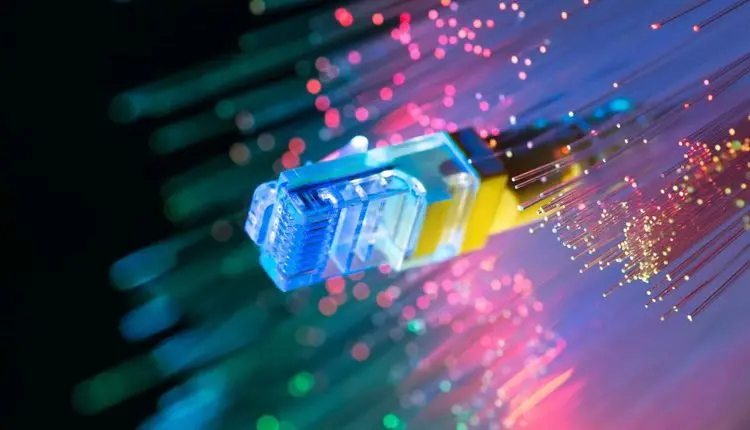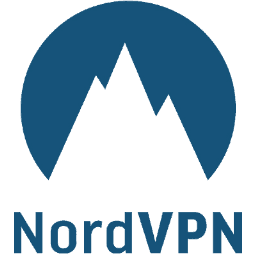
In an increasingly interconnected digital landscape, the question of whether a VPN can shield you from your Internet Service Provider (ISP) looms large.
This blog delves into the pivotal role of Virtual Private Networks (VPNs) in safeguarding your online presence from the prying eyes of ISPs. As our online activities become more scrutinized, the urgency of preserving our privacy gains prominence.
Let's explore how VPNs act as a shield against ISP surveillance, granting us the much-needed autonomy over our digital footprints in a world where privacy is both a right and a necessity.
Understanding ISPs and Their Tracking Capabilities
Internet Service Providers (ISPs) are the gatekeepers of your online connection, responsible for delivering internet access to your devices. However, their role goes beyond mere connectivity.
ISPs have the ability to monitor your online activities, tracking everything from websites visited to the duration of your visits. This monitoring isn't solely for technical purposes; ISPs can also gather user data to tailor advertisements or even sell to third parties.
This tracking can be attributed to several factors, including targeted advertising, market analysis, and generating revenue through data sales. Understanding how ISPs track your online behavior is crucial in today's digital landscape.
How a VPN Can Protect You from Your ISP?

A Virtual Private Network (VPN) acts as a shield between you and your Internet Service Provider (ISP), ensuring your online privacy.
When you connect to a VPN, your internet traffic is routed through a secure, encrypted tunnel. This process conceals your IP address and online activities from your ISP's prying eyes. The VPN's encryption methods further fortify your data's confidentiality.
It encrypts your information, transforming it into unreadable code, making it virtually impossible for your ISP to decipher your browsing habits. With a VPN, you regain control over your online footprint, ensuring your data remains private and beyond your ISP's surveillance.
Choosing A Reliable VPN
When it comes to safeguarding your online privacy from ISPs, ExpressVPN emerges as a trustworthy solution. With robust encryption measures and a stringent no-logs policy, ExpressVPN ensures your online activities remain private and beyond the reach of ISPs.
Its advanced encryption protocols create an impervious shield, concealing your internet traffic and IP address. Check our list for your detailed comparison:
Additionally, ExpressVPN's commitment to not storing user logs adds another layer of security. By choosing ExpressVPN, you gain the assurance of a reliable and privacy-focused VPN service that effectively shields your digital presence from the prying eyes of ISPs.
Limitations of VPNs in ISP Protection
While VPNs are valuable tools for safeguarding your online privacy from ISPs, there are situations in which they may not provide comprehensive protection. Here are some potential limitations to consider:
- VPN Connection Drops: If the VPN connection unexpectedly disconnects, your internet traffic could revert to being visible to your ISP until the connection is reestablished.
- VPN Service Logs: Certain VPN providers may keep logs of user activities, potentially compromising your privacy if these logs are accessed by third parties.
- DNS Leaks: In some cases, your device might bypass the VPN's encrypted tunnel and use default DNS servers, allowing ISPs to track your online activities.
- Device Vulnerabilities: If your device has security vulnerabilities, such as malware or spyware, a VPN may not fully protect against these threats.
- VPN Legality: In some regions, using a VPN may be restricted or regulated by law, affecting the level of protection it can offer.
- Limited Applicability: While a VPN can encrypt your internet traffic, it may not fully protect data shared through other applications or services.
- Connection Speed: The use of a VPN can sometimes result in reduced internet speeds due to the added encryption and rerouting of data.
- Third-Party Tracking: Some websites and online services employ tracking methods that can persist even when using a VPN.
- Unencrypted Endpoints: If you visit websites or use services that don't use HTTPS, your data might remain vulnerable between the VPN server and the destination.
Understanding these limitations helps you make informed decisions about using a VPN for ISP protection and adopting additional security measures as needed.
Additional Steps for Enhanced Privacy from ISPs
Beyond using a VPN, there are supplementary steps you can take to bolster your privacy against ISP tracking:
- Secure Browsers: Opt for browsers with built-in privacy features, like Firefox or Brave, which prioritize user data protection.
- DNS over HTTPS (DoH): Enable DoH in your browser settings to encrypt DNS queries, preventing ISPs from tracking your visited websites.
- HTTPS Everywhere: Install browser extensions like “HTTPS Everywhere” to ensure websites use encrypted connections whenever possible.
- Privacy-Focused Search Engines: Use search engines like DuckDuckGo that prioritize user privacy by not tracking search history.
- Ad and Tracker Blockers: Install ad-blockers and tracker-blockers to limit data collection by online advertisers.
- Two-Factor Authentication (2FA): Secure your online accounts with 2FA to prevent unauthorized access to sensitive data.
- Encrypted Messaging Apps: Utilize end-to-end encrypted messaging apps like Signal for private conversations.
- Regular Software Updates: Keep your operating system and applications up to date to patch security vulnerabilities.
- Firewall and Antivirus: Employ firewall and antivirus software to safeguard your device from potential threats.
- Router Security: Strengthen your home network security by changing default router passwords and enabling WPA3 encryption.
Implementing these additional measures alongside a VPN can create a multi-layered defense against ISP tracking and bolster your online privacy significantly.
Conclusion
In conclusion, a VPN, exemplified by ExpressVPN, offers a robust shield against ISP tracking, safeguarding your online activities and preserving your privacy. However, it's important to recognize that no single solution is foolproof.
By combining a VPN's encryption with additional security measures like secure browsers, encrypted messaging apps, and DNS over HTTPS, you create a comprehensive defense against invasive ISP surveillance.
Remember that taking control of your online privacy empowers you to navigate the digital realm with confidence. Consider adopting a VPN as a cornerstone of your strategy for enhanced protection from ISP tracking, and enjoy a safer and more private online experience.
FAQs
Can a VPN completely hide my online activities from my ISP?
While a VPN adds a layer of privacy by encrypting your data and masking your IP, it doesn't provide absolute invisibility. Your VPN provider and the websites you visit can still gather some information.
Are all VPNs equally effective in protecting against ISP tracking?
No, the effectiveness of a VPN varies. Look for VPNs with strong encryption, a strict no-logs policy, and a reputable reputation for enhanced protection.
Can I use a VPN on all my devices, including smartphones and tablets?
Yes, most VPNs offer apps for various devices, ensuring you can protect your online activities on smartphones, tablets, laptops, and more.
Do VPNs slow down my internet speed?
Using a VPN may lead to a slight reduction in internet speed due to encryption and rerouting. However, with a reliable VPN provider, this slowdown is often minimal.
Can a VPN prevent my ISP from knowing which websites I visit?

Thomas Smith is the editor of forprivacy.org, overseeing a team focused on building the voice of the cybersecurity world through guides, reviews articles and community. His background is as a writer and seasoned software industry veteran with 10 years of experience.
More Posts




